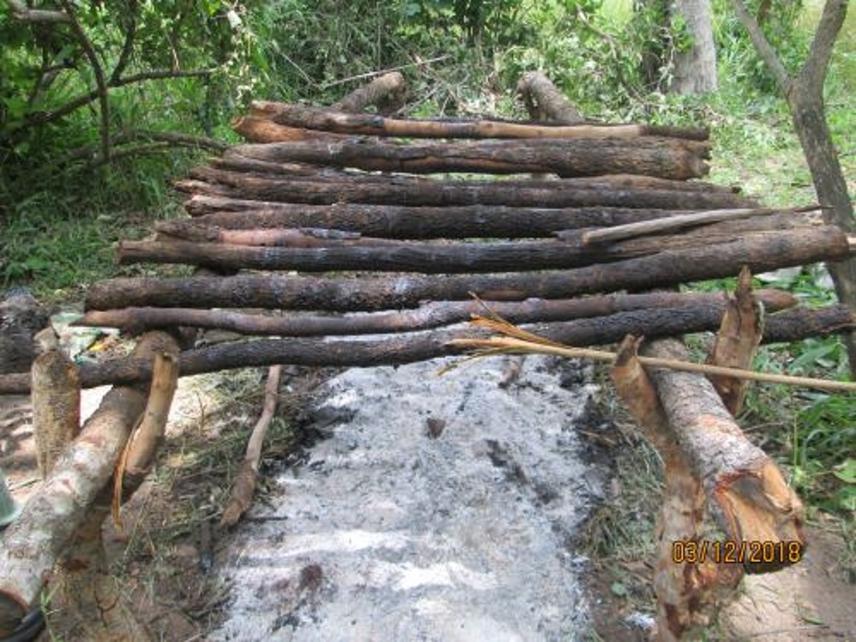Paulo Wilfred
Other projects
15 Jul 2015
Reconciling Conservation and Livelihood Maintenance in Western Tanzania: Challenges and Opportunities
18 Dec 2018
Capacity Building for Better Conservation Rules Enforcement in Western Tanzania
This project is the continuation of our previous RSGF-funded conservation projects in the Ugalla ecosystem of western Tanzania. In general, we aim to build capacity for direct conservation intervention (ranger patrols to control illegal behaviours), and indirect intervention (engaging local people so that they themselves change their behaviours). The previous project dealt with ranger patrols; this project aims to improve the engagement of local people. Therefore, we will work along with conservation authorities in Ugalla to explore underlying drivers of poaching, identify suitable community engagement interventions, and start implementing some of these interventions in collaboration with local people.

A bushmeat smoking rack. © Ugalla Game Reserve.
Our Rufford-funded project in the Ugalla ecosystem of western Tanzania is broken down into various phases. The initial two phases (2013 to 2017) estimated the magnitude and extent of poaching alongside other illegal behaviours (e.g. Wilfred et al., 2017). The present phase (which started in 2018) aims to contribute towards deterring illegal behaviours in two stages. In the first stage (December 2018-December 2019) we trained rangers and implemented SMART technology so to improve ranger patrols. We are now in the second stage; in this stage we will work along with wildlife rangers and managers to target the right interventions to the local communities. To this end, we will first assess the underlying drivers of poaching using household questionnaires and focus groups as data collection tools. By sampling villages that supply a huge number of poachers and those with fewer poachers based on long-term law enforcement records, rangers’ knowledge, and our previous projects, we will be able to identify community engagement interventions pertinent to people living locally with wildlife in Ugalla. Results generated by SMART will also inform the identification of these interventions. Furthermore, we will begin implementing some of these interventions in collaboration with local people. We envisage that the lessons that will be drawn from this work will inform efforts to improve the capacity of conservation authorities not only in Ugalla but also in other areas of conservation importance in Tanzania.
References:
Wilfred, P., Milner-Gulland, E.J. & Travers, H.W.L. (2017). Attitudes to illegal behaviours and conservation in western Tanzania. Oryx. doi:10.1017/S0030605317000862